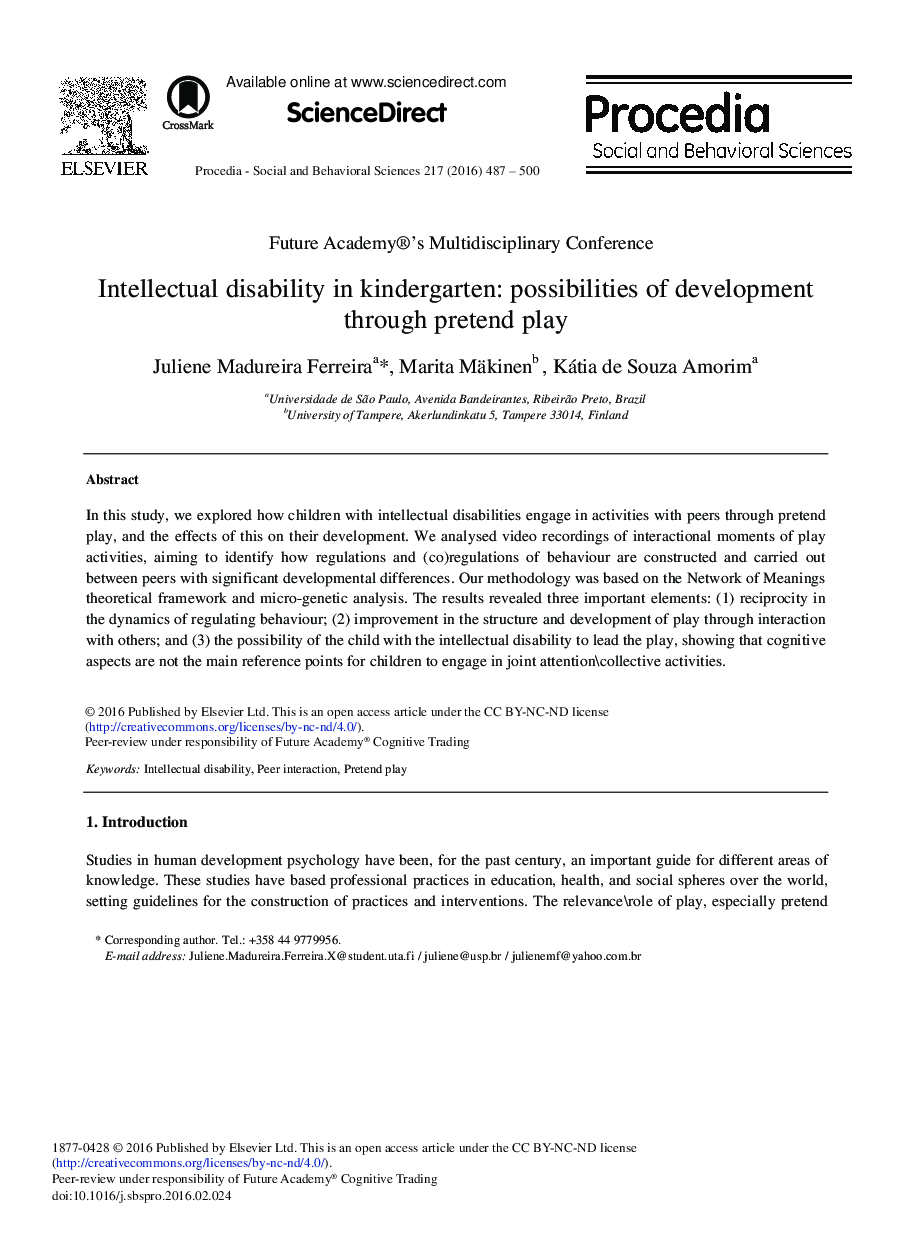| Article ID | Journal | Published Year | Pages | File Type |
|---|---|---|---|---|
| 1108617 | Procedia - Social and Behavioral Sciences | 2016 | 14 Pages |
In this study, we explored how children with intellectual disabilities engage in activities with peers through pretend play, and the effects of this on their development. We analysed video recordings of interactional moments of play activities, aiming to identify how regulations and (co)regulations of behaviour are constructed and carried out between peers with significant developmental differences. Our methodology was based on the Network of Meanings theoretical framework and micro-genetic analysis. The results revealed three important elements: (1) reciprocity in the dynamics of regulating behaviour; (2) improvement in the structure and development of play through interaction with others; and (3) the possibility of the child with the intellectual disability to lead the play, showing that cognitive aspects are not the main reference points for children to engage in joint attention\collective activities.
